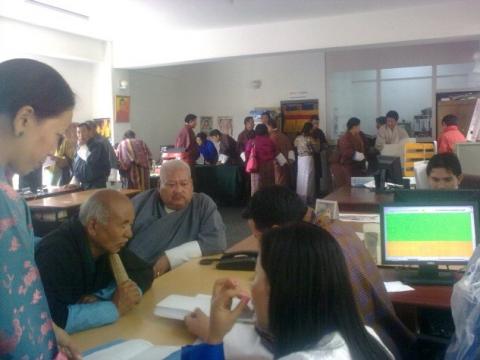Land pooling or land readjustment is gaining more and more acceptance as an alternative to land acquisition in the backdrop of massive infrastructure investments, especially in urban areas. It is often seen as a more inclusive and efficient approach compared to compulsory land acquisition, and a win-win situation in which the government can upgrade the neighborhood without having to rely on eminent domain, and the landowners can enjoy better living conditions and an increase in the value of their real asset. This course is designed to assist policymakers and practitioners to understand the general concepts and empirical applications of Land pooling and land readjustment (LP/LR). Our goal is to assist participants, after taking this course, to perform the following tasks: 1. Identify what problems and under what circumstances they can apply LP/LR; 2. Understand how LP/LR works in both theory and practice; 3. Set realistic goals for LP/LR projects from the perspectives of different stakeholders; 4. Design and execute the implementation processes such as assessing and mitigating risks and developing grievance redress mechanisms; and 5. Anticipate possible unintended outcomes and evaluate LP/LR projects. The course is organized into the following modules: Module 0: Executive Summary Module 1: Overview - Using Land Readjustment to Cope with Rapid Urbanization Module 2: Where has land readjustment been adopted or experimented with? Module 3: What Policy Goals Can Land Readjustment Achieve, and Under What Conditions? Module 4: How Should Land Readjustment Projects Be Designed and Implemented? Module 5: What Have We Learned? Throughout the course, we will use real-world examples to illustrate important points related to the above-mentioned tasks. We will also discuss in detail the experiences of adopting LR in several countries to show how this land tool can facilitate urbanization and mediate related problems in developing country contexts.

About Open Learning Campus
All registered users of OLC can experience its impact of new features. If you are already registered with OLC you can directly sign in to the new system. If you are a new user then do register to avail of the dynamic learning opportunities from WBG to deepen your knowledge and skills on a variety of development related topics. For example, you will have access to timely resources such as:
- Ted like video talks
- Podcasts
- Formal learnings (i.e., Self-paced courses/Facilitated Courses/MOOCs)
- Live events and Knowledge Exchanges
- Communities of Practice
You will have access to an extensive catalog of resources through which you can search and discover relevant learning materials.
How to Access the Course Content
To access the course content, please follow the below registration steps:
- Open https://wbg.edcast.com/
- Navigate to “No account?” and select “Create one!”. Select “Next” to continue with the next step.
- Enter the code that you received via email at the “Enter Code” field. Select “Sign in” to continue with the next step.
- Fill in your First and Last Names and select a preferred communication language. Select “Next” to continue with the next step.
- Select up to five learning goals. Select “Next” to continue with the next step.
- Select up to five skills. Select “Next” to continue with the next step.
- Congratulations and welcome to the OLC! You’ll find additional tips and suggestions inside the “Welcome to the Open Learning Campus” channel at the top of the home page.
Course Details
- Mode: Self-Paced
